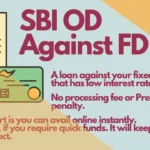Is it better to foreclose your personal loan account?
Or is it better if you leave it as it is and wait for its tenor to be over?
It’s natural that all of us want to have a debt-free life without worrying about the next month’s EMIs, you know!
The sooner you liquidate the loan, the better you will feel, as it will set you free from any debts. Instead of paying interest, you can earn interest if you are debt-free.
We are talking about the early liquidation of a personal loan before it matures. Will that be a wise decision?
We will try to bring out the pros and cons of doing so. Let’s see what’s in it for us.
A personal loan
For an employed person, it’s quite easy to get a personal loan nowadays. The online platform really boosts the loan processing speed, with less documentation available at almost every bank you could possibly think of.
State Bank of India, the country’s largest bank, offers a variety of personal loans too. These include
- Xpress credit A personal loan for a salaried person, either in a state or central government organization or PSU.
- Pension loan A personal loan for pensioners.
- Loans against fixed deposits, mutual funds, life policies, gold, gold bonds, etc.
Popular banks such as ICICI Bank Ltd., HDFC Bank, Axis Bank, and other public sector undertaking banks also offer various personal loan products.
Normally, a personal loan is an unsecured loan given against the salary, so there is no security or collateral being taken by the bank. Its terms and conditions are required to be known by the loanee (the person who takes the loan).
Under its terms and conditions, different banks have different premature closure fees, or some banks might levy charges for foreclosure. The rate at which these charges are levied depends from bank to bank.
It varies from 2% to even 16% of the prepaid amount. PSB banks such as SBI and PNB. They do not have high foreclosure charges as compared to private sector banks, which can go up manyfold.
Click to learn more about SBI personal loans.
You might end up paying more
Yes, it’s true that you might end up paying more. You see, there will be prepayment penalties as well as foreclosure charges. Banks used to give certain concessions, but not to all.
For example, at the State Bank of India, if you are an existing customer who avails of the Xpress credit facility, you might get a concession on the prepayment penalty if you get another Xpress credit loan. Here, in this case, the closure of the previous loan will be without penalty as per the bank’s norms.
Otherwise, the bank will impose those penalties.
For SBI and other PSUs, these charges are minimal. It will be around 2–3% only. Per lakh, it will be around ₹2000 to ₹3000 only. So, foreclosure of your personal loan by these banks is okay. You will not end up paying more than you anticipated.
If you maintain a personal loan at other banks where the foreclosure charge is in the range of 10% and above, you will end up paying more. Per lakh, you will pay above ₹10000. It will cost you heavily.
| Pros: Personal Loan Foreclosure | Cons: Personal Loan Foreclosure |
| It will give you a debt-free life. | Charges may be higher than you anticipated. |
| More funds are available at your disposal so more investment. | You may end up paying a higher loan closure charge. |
| Income generation opportunity. | Your CIBIL score may get better. Pre-closure of loans usually gets a better score. |
| Can streamline the fund flow of your account. |
How to proceed with the closure of the account?
It’s simple to initiate the closure of your personal loan account. Most banks prohibit the closure of accounts within a year.
Banks normally give you a time period when you will be able to foreclose your personal loan account. By then, you simply write an application to the bank or fill out the foreclosure form available at the bank and submit it.
You will get the details of your account. These might include
- Present outstanding
- Accrued interest
- Foreclosure charge
- Prepayment penalties
All these will let it to the exact foreclosure amount of your personal loan account on a specific day. The amount may change the next day.
Conclusion
Now that we have seen its pros and cons. I would definitely suggest going for the closure of the loan account if you have extra funds.
If the foreclosure charge is way too high, then see if it’s less than the normal route which is to wait out to exhaust the loan tenor.
If the closure amount is lesser, it’s better to close to avoid the long-term interest compounding effect.
When one does take financial assistance from the bank, it’s because he is in need of funds that he can not cover on his own. But, getting a loan is not the solution. He has to think of a better plan to liquidate it with maximum benefit.
If it’s a term loan that runs for 5 to 6 years, there will be an accumulation of a huge interest portion at the end of the tenor. To avoid this, foreclosure or early closure of the account is not possible. Then make an investment for the same period to nullify the asking interest rate.








